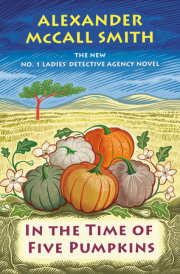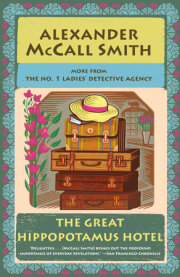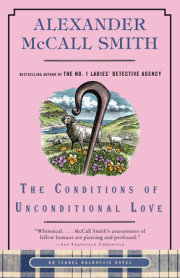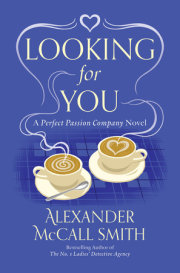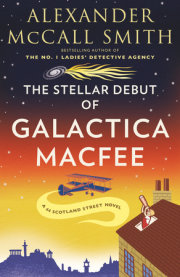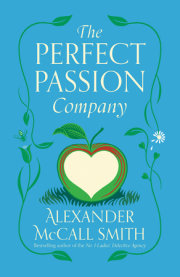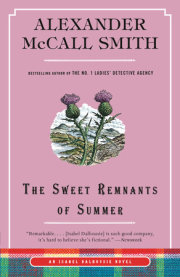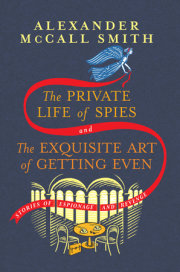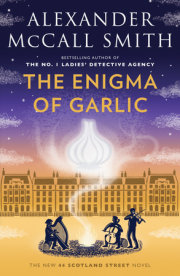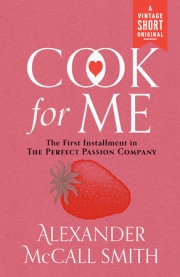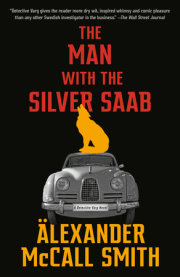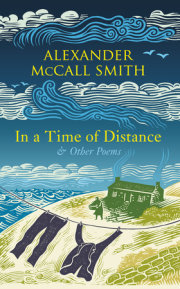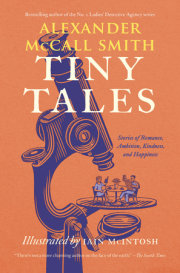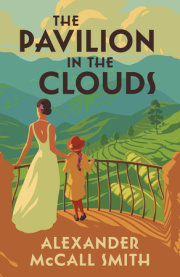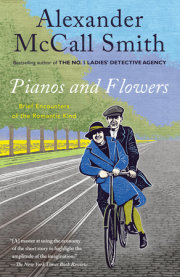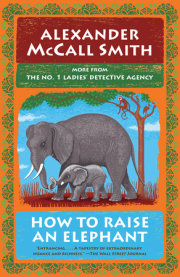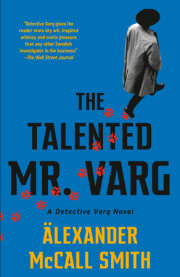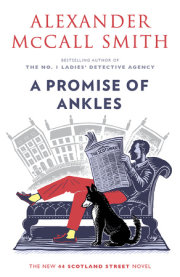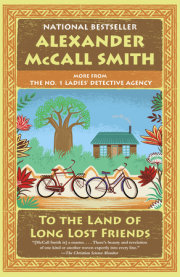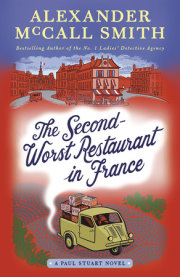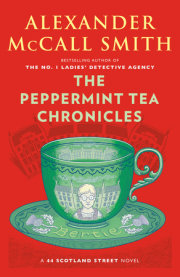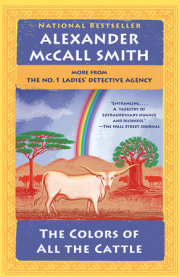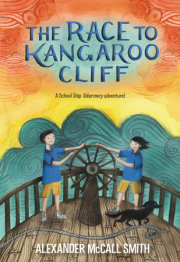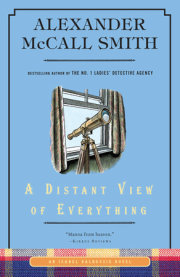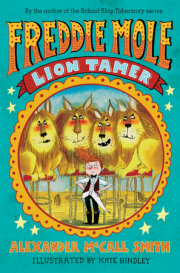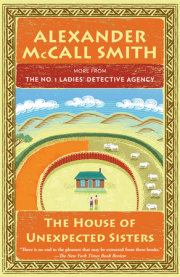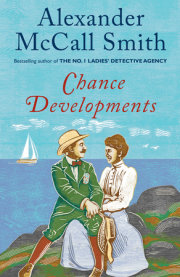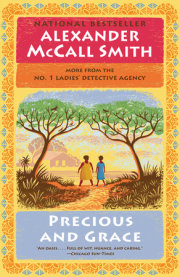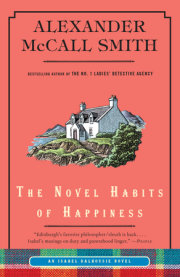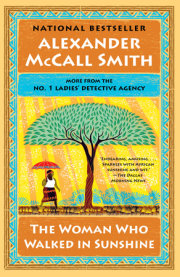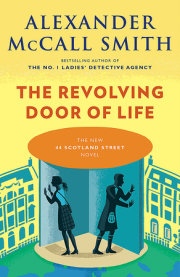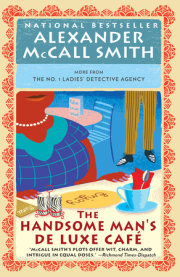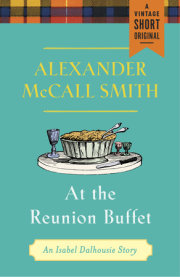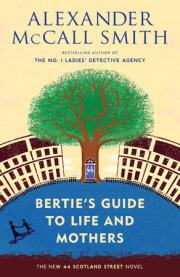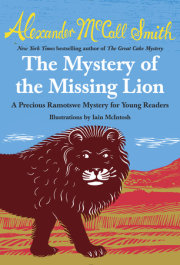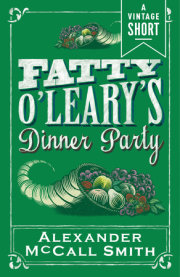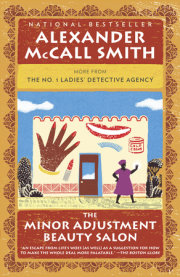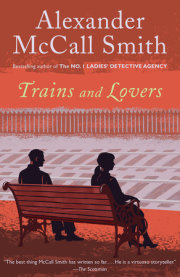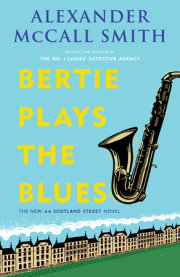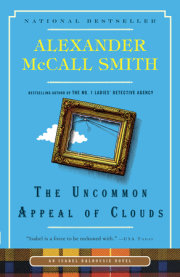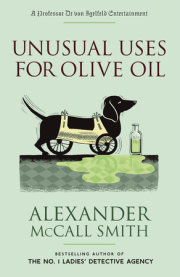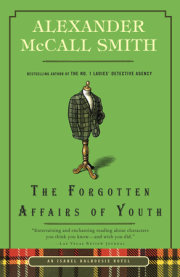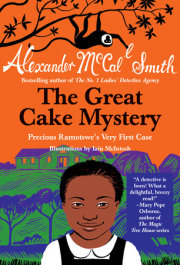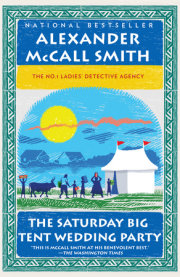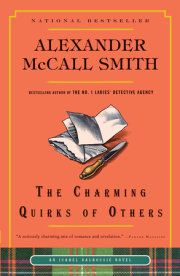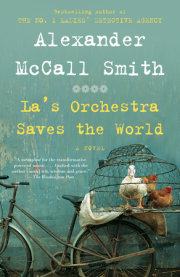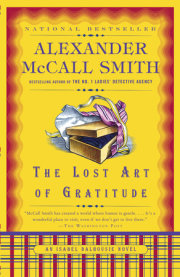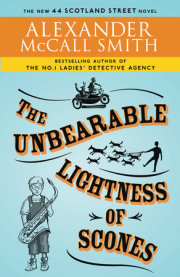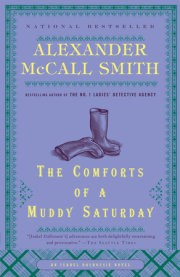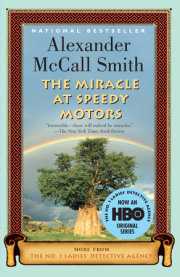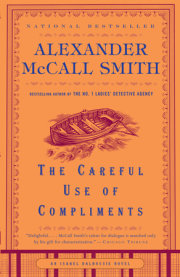Chapter One F
riends, lovers, etc. They were sitting in the office of the Perfect Passion Company, Scotland’s only non-virtual dating agency, as the local paper had called it, or, in the words of an article in a lifestyle magazine, “a place where you go if you want to meet other people who don’t know how to use a computer.”
That was not only snide, but was simply wrong, thought Katie, the company’s acting manager and, in a rather ill-defined way, its owner-in-waiting. There were plenty of people who were quite capable of negotiating their way about internet dating sites, but who chose to steer clear of them. They had their reasons, and most of these were perfectly good ones. Some were wary of the way in which the frequenters of these sites misdescribed themselves in their profiles. How many dates got off to a bad start because the photograph displayed in an online profile was an out-of-date one, reflecting reality before gravity or weathering wreaked their effects, or misleading because the picture had been taken from a flattering angle, in crepuscular conditions, when light is at its most forgiving?
Then there were concerns over safety. Most people on dating sites might be innocent, posting in complete good faith, but at least some would be anything but that. And so, if people opted to have an old-fashioned matchmaker choosing the person they were to meet, then their choice was entirely understandable, and sarcastic throw-away remarks about computer skills were misplaced.
That is what Katie thought, and she knew that William, the Australian knitwear designer and quasi-colleague with whom she was sitting in the office that morning, agreed with her. She had discovered that she and William were in agreement over most things, although she had never said anything to him about this comfortable consensus. William was engaged to somebody else—in Australia—and Katie did not want him to think that her feelings for him were anything but those ordinary feelings of friendship. She knew that in life we often have to settle for what we can get, and if all she was going to get from William was his friendship, then that was enough. Might it have been otherwise? She tried not to dwell too much on that. The thing about temptation was that if you ignored it, it faded away. That was the theory, anyway.
William’s status as a quasi-colleague had arisen without the two of them ever having specifically discussed how he fitted into the business. He had a studio on the same landing as the office of the Perfect Passion Company, at No. 24 Mouse Lane, at the eastern end of Edinburgh’s Georgian New Town. That was where he designed, and in some cases, knitted the sweaters for which he was acquiring a growing reputation. There had been an article in
Vogue, complete with pictures of what the magazine described as the “beguiling, post-modern creations of this dashing young Australian Apollo.” That description had made William wince, which, Katie thought, was a good sign. She would never feel easy with anybody who did not experience at least some embarrassment on being called an Apollo, Australian or otherwise. William was modest, and she approved of that.
The growing appeal of his knitwear could have meant that William had no time to do much else. Yet he seemed increasingly keen on involving himself with the Perfect Passion Company, and Katie regularly sought his advice on a whole range of issues. Sometimes, though, they simply chatted, as they were doing now, over a cup of coffee when nothing else was happening.
She enjoyed these moments, as did he. William was younger than she was by almost four years, but the disparity between their ages seemed to make little difference. There were some twenty-six-year-olds who were still surprisingly immature, Katie thought, but William was certainly not one of those. He
understood, she told herself; he empathised. He was one of those people who could sense what it was like to be you—it was as simple as that. People who had that gift gave you their full attention, which, after all, was what most of us wanted. And we did not like the opposite of that: it was particularly annoying, Katie thought, to find yourself talking to people who patently could not be bothered to listen to what you had to say, or, if they listened, were clearly indifferent to what they heard. She remembered somebody she had met in London who was just like that—a minor art critic who seemed to be at every gallery opening and who had made a point, it seemed to her, of forgetting her name.
It was this issue of attending to others that, as it happened, Katie and William were discussing that morning as they sat in the office, Katie behind her desk, and William leaning against a filing cabinet. William, Katie had observed, liked to lean, which he did with an appealing nonchalance. Everything about him was appealing, though, as far as she was concerned, and so it was no surprise that when it came to leaning, he should lean in an attractive manner.
“You could always sit down,” said Katie, gesturing towards the chair before her desk. “You might be more comfortable.”
Nursing his mug of coffee in clasped hands, William shook his head. “No,” he said, “When I’m in my studio, I usually sit down. I like to stretch a bit.”
“You should do yoga,” said Katie. “Lots of stretching.”
“I’ve done it in the past,” said William. “Back in Melbourne. I went to yoga classes for two years. Our teacher was amazing. She could bend herself right over until she was the wrong way up—or most of her was upside down. You found yourself talking to her feet, which were where her head should have been.” He paused. “You know something? You can say things to a person’s feet that you can’t say to their face.”
Katie burst out laughing.
“Not that I ever did,” said William, with a smile. He took a sip of his coffee. “You were saying this critic would come into the room and look about him to see if…”
“If there was anybody worth talking to,” said Katie. “Yes, he came to the gallery openings. People like that love gallery openings.”
William made a face. “I can’t stand those things,” he said. “You can’t get anywhere near the paintings because the place is full of people drinking wine and chatting to friends. The pictures might as well not be there.”
Katie agreed. For two years she had attended monthly openings at the gallery in which she worked in London, and she had seldom enjoyed them. She felt sorry for the artists, who were sometimes completely ignored on these occasions. At one opening, she had seen the artist mistaken for a waiter and asked to fetch a glass of wine; at another she had heard somebody delivering a scathing criticism of the work on show without realising that the person he was addressing was the artist herself. Those were egregious examples, but there were many lesser humiliations in store for artists at their openings, especially in the earlier stages of their career.
She pictured the critic she had been describing to William. She had not thought about him for a while, and now he came back to her, dressed in his habitual blue-striped seersucker suit, his salt-and-pepper hair swept back into a slightly ridiculous ponytail, his expression one of bemused superiority.
“He churned out art crits for a London magazine,” Katie said. “But apart from that, nobody really knew what he did. He was everywhere—at all the openings—and he seemed to know everybody. But his real interest was talking to people he thought were influential. If he spoke to you at one of the openings, he would look over your shoulder to see if there was anybody more interesting. It was so obvious.”
William shared her distaste. “Awful,” he said.
“Yes. But it made me think about how the rest of us manage friendship. We have our faults. The way we choose friends, for instance—is it always…on the basis of who they are, or is it sometimes to do with what they have?”
William frowned. “Surely not. Because they’re well off? No.”
“No,” said Katie. “Life isn’t a Jane Austen novel. But if you think about it, are we really indifferent to whom our friends are? Does it matter if they’re rich or broke? I’m not saying that I’d seek out the friendship of people simply because they have money, for instance.”
William looked at her reproachfully. “I should hope not.”
“Although there are lots of people who do just that,” said Katie.
“Maybe. But then they’re…they’re just that sort of person.”
Katie nodded. “Yes, they are. But, if we’re honest with ourselves, don’t we choose friends because of what we think we might get from the friendship?”
William waited for her to explain.
“I mean, we like people who
mean something. At least, I do. And maybe that’s because we think that some of the things our friends do will rub off on us. We think that being around interesting people makes us more interesting ourselves.”
William looked doubtful. “I don’t see how that works. You don’t get to play the violin by hanging out with a famous violinist.”
“No, you don’t. But the truth is that we
feel better when we’re in the company of people with something to say, people who are fun.”
William thought about this. Then he said, “Blondes have more fun. Did you know that?”
She laughed. “So they say. But I’m not sure.”
“David Hockney thought they did. He saw a commercial that said exactly that, and he went off and dyed his hair blonde. He never looked back.”
Katie thought of her friend, Ell, who was one of those people who were on the verge of being blonde, depending on the light. Was Ell’s hair colour natural, she wondered? And did she have more fun? She remembered Ell’s play for William—her flirting and the overheard conversation on the landing outside the office door. William had not mentioned her since then, and Katie had no idea whether or not he and Ell had been in touch. She did not like to ask, though, nor even to think of it, because it made her feel hot and bothered. Perhaps it had all blown over. Perhaps there had been no phone call between them.
She said, “I could ask my friend, Ell. She’s a blonde—sort of.”
William looked away, and Katie realised that she had touched a nerve. She should not have said what she said—she must have sounded sarcastic, even sharp, which had not been her intention. William was gentle: he seemed to dislike barbed remarks, and she had just made one.
“Actually, I didn’t mean that,” she said quickly. “I’m sure Ell doesn’t touch up her hair. It’s natural, I think—and it is quite blonde, I suppose.”
But once again, the
I suppose had sounded a jarring note. She tried to backtrack. Now she said, “I’m very fond of Ell, you know. Very fond.” She swallowed. Half-truths, or even things that she wanted to be true even if they might not be, had always made her swallow. She understood the expression
to choke on a lie. She would be hopeless, she felt, on a lie detector. “We go back a long way. We’ve known one another since we were eight.” That, at least, was true. She and Ell had played Snakes and Ladders together and now she remembered something: Ell had cheated. But that was a long time ago.
She hoped that this recollection of their long friendship would make up for what had gone before. Now she asked, “Do you think one might become blonder by spending more time with blondes?”
William laughed, and the tension dissipated. “Seriously, though, when people—your clients—tell you that they’re looking for somebody with some characteristic or other, are they doing that because they feel something will rub off?” He paused. “You were telling me the other day about a man who was looking for an artistic woman. He was very insistent about that, you said. Why?”
“I assume he was looking for common interests,” said Katie. “People like to be interested in the same things. It gives them something to talk about.”
“But what if he wasn’t artistic himself?”
“Then it might be because he admired artistic people,” said Katie.
“So, she could be making up for some perceived inadequacy in himself?” said William.
“Possibly,” Katie replied.
“Do you think that people feel they can be…what’s the right word? Improved? They feel they can be improved by meeting somebody who represents what they’d like to be—but aren’t?”
Katie hesitated. She could see what he meant, but she felt that it was an odd view to take of what went on between people in a relationship. She was not sure that she saw anything wrong in admiring somebody for qualities that you yourself might not have. And if admiration then went on to a desire to possess, then that, again, was just how things had always been, and would continue to be. Human nature was not always what we wanted it to be.
William looked at his watch. “You said you had somebody coming at eleven?” It was already ten minutes to.
Katie finished off her coffee. “Yes, thanks for reminding me.”
“Anybody interesting?” asked William.
Katie told him she knew nothing about the client who was shortly to arrive—other than that his name was George and that he had sounded secretive when he phoned to make the appointment. “His voice was lowered,” she said. “It was as if he was frightened—as if he was expecting to be interrupted and the phone snatched away from him.”
William was intrigued. “Could I sit in?” he asked. “I feel I sort of work here now, and I won’t interrupt.”
“Of course,” said Katie.
She was pleased with his offer. She liked being in his company; she liked to share with William. He’s one of these people who rubs off, she thought, and smiled at the idea of it.
“Something funny?’ William asked.
Katie shook her head. “No, not really.”
The bell rang.
“I’ll answer it,’ said William. “I’ll bring him through.”
He put down his coffee cup and moved towards the door. Katie watched him. There was something in the way he walked that struck her. She tried to think of a verb to describe it, but failed to find one. She liked it. It might not suit just any man, but it suited William. William was not
just any man; there was nobody quite like William, Katie thought.
Copyright © 2023 by Alexander McCall Smith. All rights reserved. No part of this excerpt may be reproduced or reprinted without permission in writing from the publisher.







